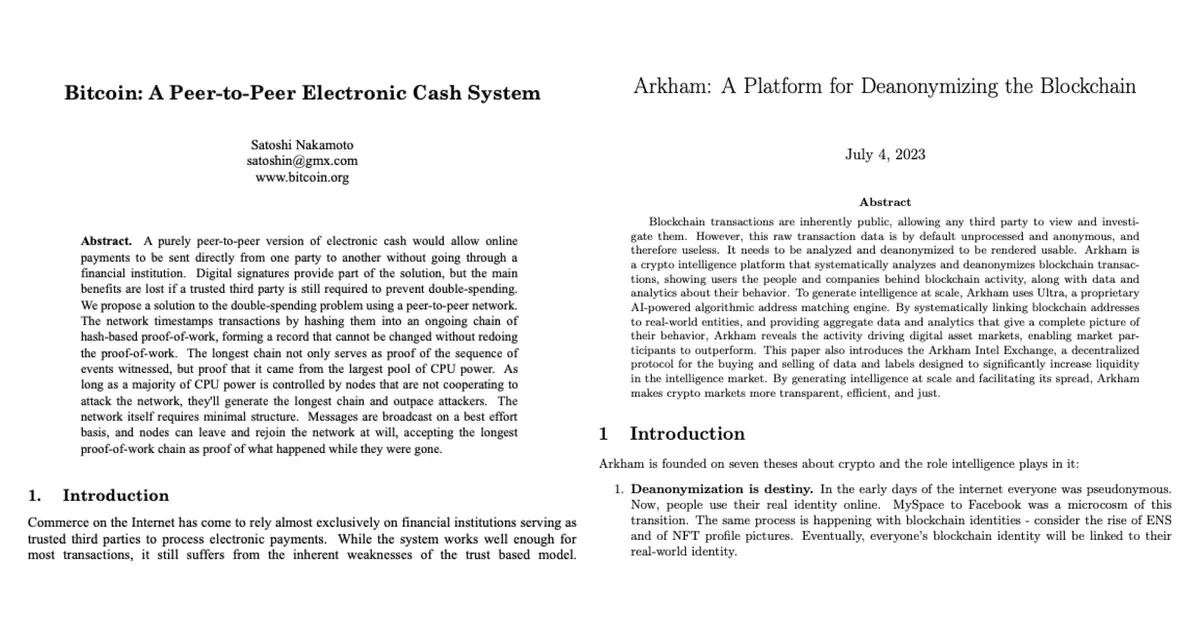As the cryptocurrency market continues to grow, reaching a total market capitalization of $1 trillion, the debate over privacy and transparency has been reignited. This week, Arkham Intelligence, a on-chain data analytics provider, opened an intel bounty marketplace with the express purpose of unmasking the owners of crypto wallets. “Deanonymization is destiny,” the company declared in a white paper. This move has been met with criticism from privacy advocates, and the subsequent revelation that Arkham had inadvertently leaked its customers’ personal data only further fueled the debate.
The discussion was further complicated by a report from CoinDesk’s Ian Allison about asset management giant BlackRock’s proposed spot bitcoin exchange-traded fund (ETF). The arrangement would allow BlackRock and the Nasdaq to pull data from the crypto exchange, “up to and including personally identifiable information (PII), such as the customer’s name and address.”
Arkham claims that its intel exchange could promote transparency for the powerful without eroding privacy for the weak. However, there is a danger that blockchain identity bounties could be weaponized against the weak. As Executive Editor of CoinDesk’s Consensus, Marc Hochstein noted, “Unlike crowdfunding websites, decentralized networks can’t be pressured into blocking transfers to politically disfavored recipients. There’s no “CEO of Bitcoin.” But you don’t need to “breach” a cryptocurrency network to see where the money is moving – it’s all out there in the open.”
